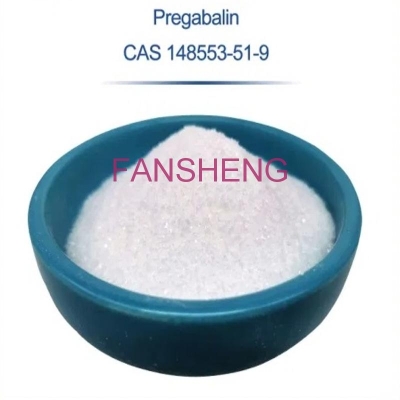Stem Cell Rep: Human Brain Experimental Evidence: Ultrasound greatly helps Alzheimer's treatment, blood-brain barrier is no longer a barrier!
-
Last Update: 2020-05-30
-
Source: Internet
-
Author: User
Search more information of high quality chemicals, good prices and reliable suppliers, visit
www.echemi.com
A new study explores the potential benefits of ultrasound therapy for Alzheimer's patientsThe researchers found that using focused ultrasound-combined microbubble therapy could create openings in the blood-brain barrier formed by human endothelial cells to deliver targeted drugs to alzheimer's patients, and that the new ultrasound treatment promises to transform the treatment of Alzheimer's disease and fundamentally change traditional understanding of its treatmentThe study is the first to study the techniques used to study brain cells in alzheimer's patients in humans based on mouse and other animal modelsThe study was published online in the journal Stem Cell Reports under the title "Altered Brain Endotype Cell Phenotype from Famila Arifial En and Its Potential Implications for Amyloid Clearance and Drug Delivery."Alzheimer's disease is the most common cause of dementia and there is no effective treatmentThe blood-brain barrier is a network of blood vessels and tissues that prevent foreign material from entering the brainThe blood-brain barrier poses a challenge to scientists studying treatments because it also prevents potential therapeutic drugs from reaching targets inside the brainstudies have shown that ultrasound can help restore memory by removing amyloid plaques that deposition in the brains of Alzheimer's patients that cause memory loss and cognitive declineBased on previous studies, the researchers found that this could weaken the connection between blood-brain barrier cells, making it possible for brain tissue to absorb drug treatment, using focused ultrasound and microbubble therapyIn the AD mouse model, focused ultrasound (FUS) of the instantaneously open blood-brain barrier was applied to find a permeable change in AD cells to 3-5 kDa right-cyclic saccharin, and a permeable change in amyloid-beta (A-beta) peptides in AD-iBECsMicrobubbles vibrate in response to ultrasound to temporarily open the blood-brain barrierThe method of penetrating the human brain with focused ultrasound and microbubbles has been tested in monkeys to dateThis provides an in vitro model of human-derived BBB as a valuable tool to understand its role and characteristics in the context of disease and may have an impact on drug deliverythey inject lipid microbubbles into cells and then aim them in the area with ultrasound, causing cells to expand and contract, disrupting connections between cells and opening the blood-brain barrierThey found that ultrasound almost completely removed plaques in 75 percent of mice without damaging brain tissueCompared to untreated mice, the treated mice showed improved memory, and they performed better on three memory tests, Y-Maze, New Object Recognition Test, and Site Active Avoidance Brain tissue analysis showed that ultrasound stimulated small glial cells ( immune cells that can devour cell fragments ) to ingest more beta amyloid plaques The animal experiment went smoothly, and the researchers then carried out the next step in the human brain Dr Lota Okari, lead author of the study , said human brain experiments have found that ultrasound and microbubble therapy have a longer-lasting effect on brain cells in Alzheimer's patients than in a healthy control group Treatment produced openings in the single layer of the blood-brain barrier in all patients, but the endothelial cells in the healthy control group repaired the cells faster than those in Alzheimer's patients, and the blood-brain barrier repair edifier in Alzheimer's patients suggested that they were more receptive to drugs and treatments, and that brain ultrasound therapy needed to be adjusted differently depending on the type of disease in the patient the study is the first to explore how blood-brain barrier cells in human patients can be destroyed to improve the absorption of Alzheimer's disease medication, bringing new dawns to the treatment of Alzheimer's disease
This article is an English version of an article which is originally in the Chinese language on echemi.com and is provided for information purposes only.
This website makes no representation or warranty of any kind, either expressed or implied, as to the accuracy, completeness ownership or reliability of
the article or any translations thereof. If you have any concerns or complaints relating to the article, please send an email, providing a detailed
description of the concern or complaint, to
service@echemi.com. A staff member will contact you within 5 working days. Once verified, infringing content
will be removed immediately.







